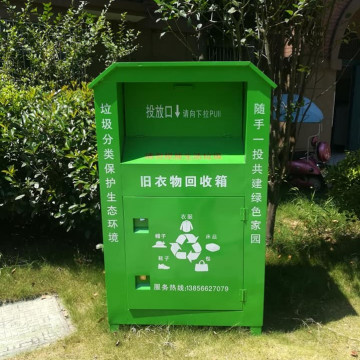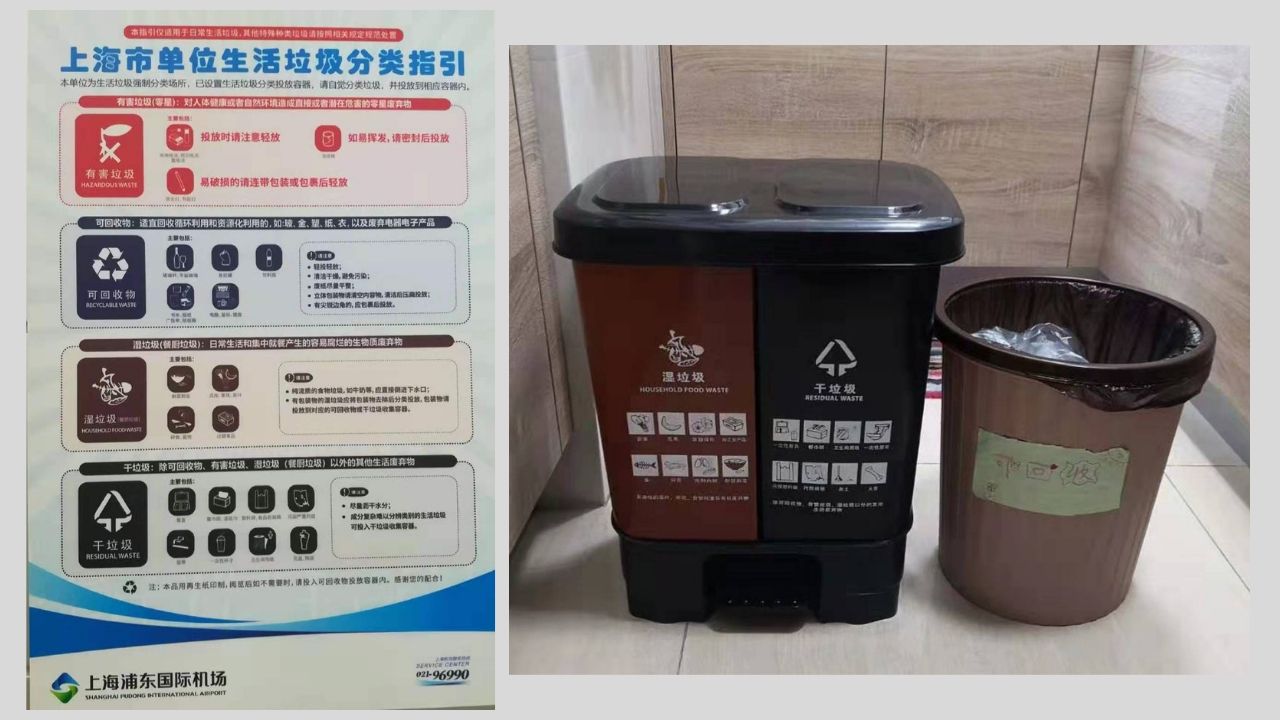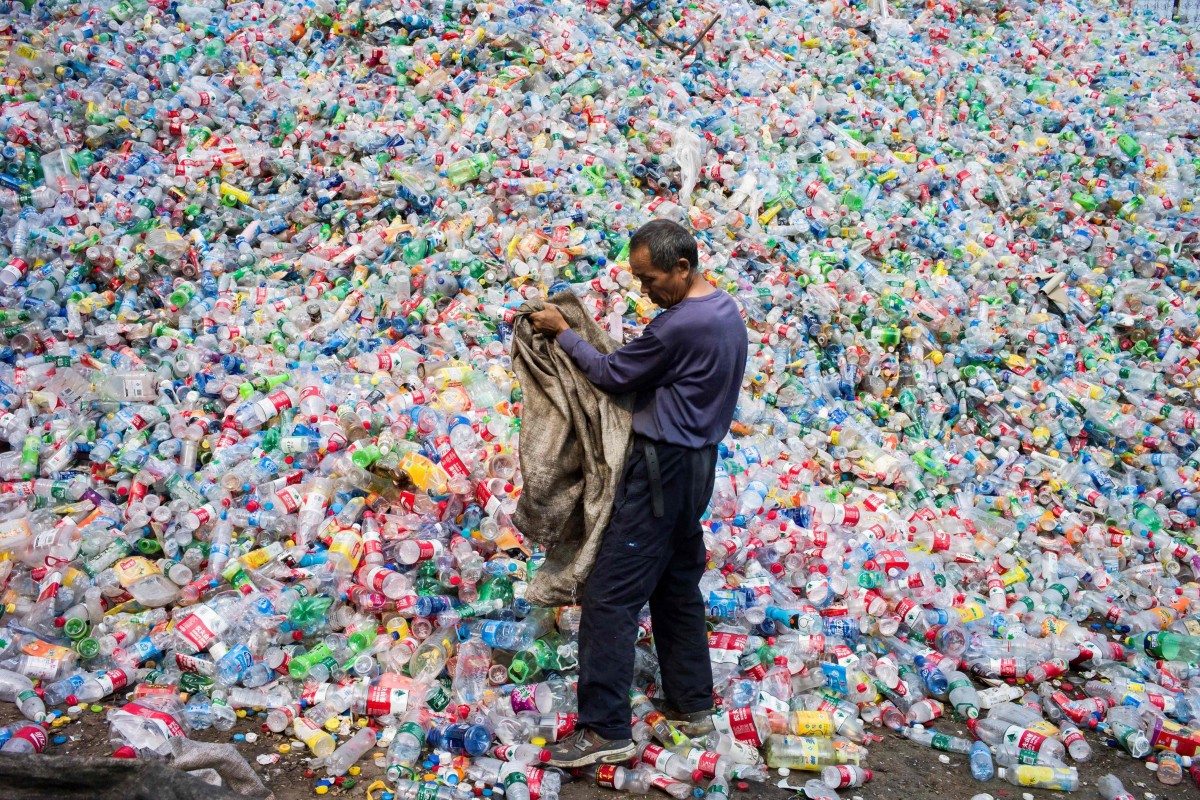
Shanghai’s new waste regulations
One month since Shanghai introduced strict new waste management rules, and the city’s residents are finally getting to grips with how to correctly separate, clean and dispose of their waste without incurring any unwanted fines. Stringent and puzzling as Shanghai’s new waste regulations may be, they are already improving the city’s recycling efforts, reducing waste and making Shanghai a leading example of how metropolises can manage millions of tons of waste more effectively.
Shanghai’s new waste management rules, which were introduced July 1, 2019, require household waste to be sorted into four categories : dry waste, wet waste (food waste), recyclables and hazardous waste. Food waste must be placed into the correct bins without any packaging while plastic containers and glass bottles must be washed before they are thrown into the recycling bins. Furthermore, residents can only throw out their trash between certain hours (usually 2 hours in the morning and 2 hours in the evening) and the waste must be placed in public bins without bags. Residents who fail to comply face fines of ¥200 ($30) and repeat offenders risk losing points on China controversial social credit system .
Companies and organisations in Shanghai are required to meet even more stringent regulations, with fines as high as ¥500,000 (US$70,000) for failure to comply.

Shanghai’s drive to tackle waste and recycling is part of the China’s broader ambitions to improve environment standards across the country. China’s 13th Five-Year Plan, which was adopted in March 2016, laid out plans for improving environmental protection, adopting clean energy and reducing pollution. Improving China’s waste management is an essential step towards meeting these ambitious environmental goals.
Shortly after adopting the 13th Five-Year Plan, Beijing abruptly passed legislation banning the import of foreign waste materials , sending a clear signal to the global community that China would no longer be the world’s ‘waste-basket’.
https://platform.twitter.com/embed/index.html?dnt=false&embedId=twitter-widget-0&frame=false&hideCard=false&hideThread=false&id=1145700280715157504&lang=en&origin=https%3A%2F%2Fwww.dominochinese.com%2Fblog%2Fshanghai-new-waste-regulations&theme=light&widgetsVersion=ed20a2b%3A1601588405575&width=550px
While Shanghai is now on course to emulate the success Japan and Taiwan have had in dramatically reducing waste, the road ahead is not without challenges. Many residents are openly expressing their exasperation at the complexity of the new waste regulations in Shanghai. Some users of Weibo, the Chinese version of Twitter, have joked that garbage-sorting is so confusing that it is easier to just stop eating at home.
The garbage sorting regulations for food waste are the ones which have most exasperated Shanghai’s residents as Li Anlan explains in SHINE ,
‘corn kernels and cobs are perishable waste, but the husk is residual waste because it is fibrous. Fish and chicken bones are food waste, but harder pork and beef bones, along with oyster and clam shells, are dry waste. The shell of a hairy crab is perishable, but king crab shells are residual.’

Furthermore, anything that goes into the household food waste bin must be free of packaging, so those last slices of bread must be removed from the bread bag, and if you’ve a bag of expired candy, you’ll need to unwrap each and every sweet before placing the candy in the waste bin.
Bewildering as the waste regulations in Shanghai may seem, it appears that many of the city’s residents are already becoming accustomed to the new rules. However, it’s realistic to anticipate greater challenges ahead as China extends the waste regulations to other major cities, including Beijing. Guangzhou, Shenzhen, and Hangzhou.
As Du Huanzheng, director of the Recycling Economy Institute at Tongji University, explained to SCMP, successfully implementing these monumental changes will take time,
“Japan took one generation to move to doing its waste sorting effectively, so we shouldn’t have the expectation that our initiative will succeed in several years. The lessons we can learn from Japan include carrying out campaigns again and again, and paying close attention to educating young pupils about rubbish classification.”

If China is to meet the target of recycling more than 35% of the country’s waste by 2022 the active participation of local government, social organizations, the academic community, workplaces and schools will be essential.
Looking ahead, it’s reasonable to expect that similar regulations will be introduced in countries across the world as leaders wake up to the fact that the current levels of waste created by the global community are completely unsustainable.
According to the World Bank’s ‘What a Waste 2.0 ’ report, the world generates over 2 billion tonnes of municipal solid waste annually, of which over 700 million tonnes are not managed in an environmentally safe manner. This failure to manage millions of tonnes of waste is destroying the natural environments and choking our oceans with millions of tonnes of plastic waste.
https://platform.twitter.com/embed/index.html?dnt=false&embedId=twitter-widget-1&frame=false&hideCard=false&hideThread=false&id=1158367269904375809&lang=en&origin=https%3A%2F%2Fwww.dominochinese.com%2Fblog%2Fshanghai-new-waste-regulations&theme=light&widgetsVersion=ed20a2b%3A1601588405575&width=550px
As Sameh Wahba, World Bank Director for Urban and Territorial Development , explains
“Poorly managed waste is contaminating the world’s oceans, clogging drains and causing flooding, transmitting diseases, increasing respiratory problems from burning, harming animals that consume waste unknowingly, and affecting economic development,”
So don’t be too surprised if in the not too distant future you’re also required to sort your waste in the same way as Shanghai’s residents. It may seem an inconvenience, but ultimately it will make your city more livable and you’ll be reducing the damage caused to the local and global environment.
https://platform.twitter.com/embed/index.html?dnt=false&embedId=twitter-widget-2&frame=false&hideCard=false&hideThread=false&id=1158639223110557703&lang=en&origin=https%3A%2F%2Fwww.dominochinese.com%2Fblog%2Fshanghai-new-waste-regulations&theme=light&widgetsVersion=ed20a2b%3A1601588405575&width=550px